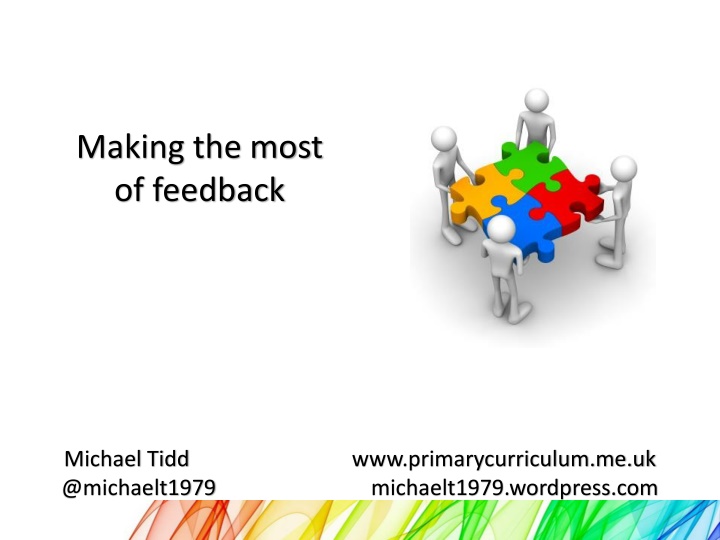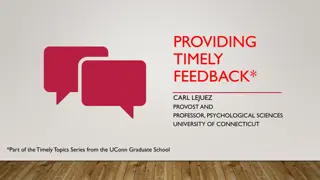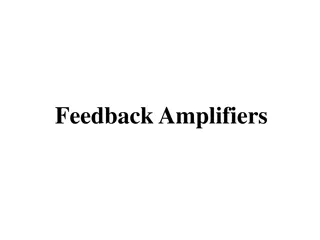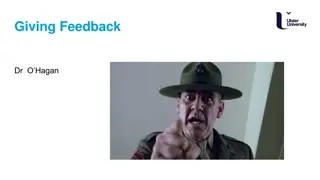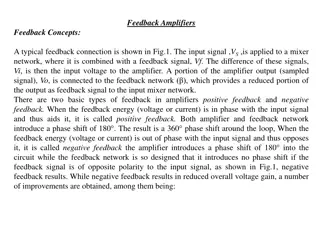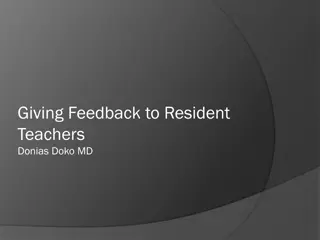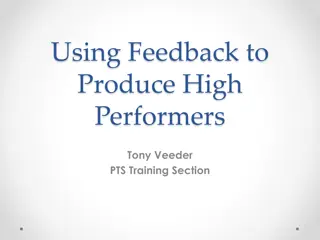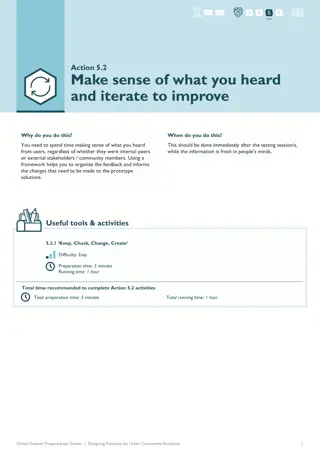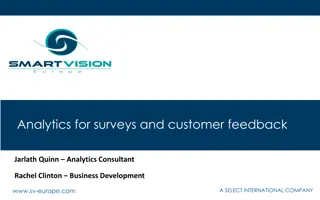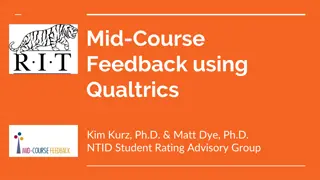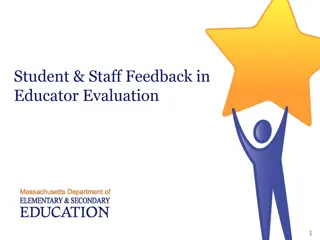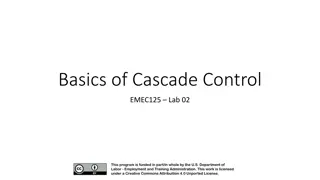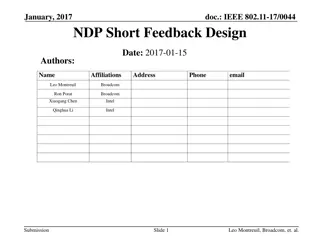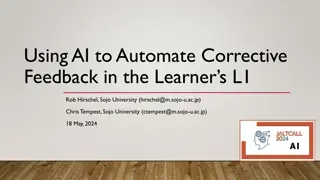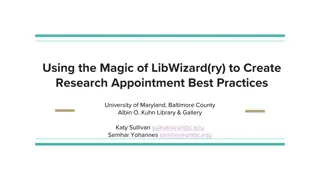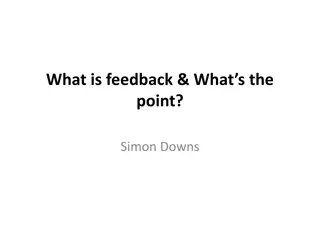Making the most of feedback
In this insightful article by Michael Tidd, practical strategies for maximizing feedback in educational settings are explored. From understanding the value of feedback to implementing effective feedback loops, this resource offers a comprehensive guide to harnessing feedback for student growth and development. Whether you are a teacher looking to improve assessment practices or a student seeking to make the most of feedback, this article provides valuable insights and actionable tips to enhance the learning experience.
Download Presentation

Please find below an Image/Link to download the presentation.
The content on the website is provided AS IS for your information and personal use only. It may not be sold, licensed, or shared on other websites without obtaining consent from the author.If you encounter any issues during the download, it is possible that the publisher has removed the file from their server.
You are allowed to download the files provided on this website for personal or commercial use, subject to the condition that they are used lawfully. All files are the property of their respective owners.
The content on the website is provided AS IS for your information and personal use only. It may not be sold, licensed, or shared on other websites without obtaining consent from the author.
E N D
Presentation Transcript
Making the most of feedback Michael Tidd @michaelt1979 www.primarycurriculum.me.uk michaelt1979.wordpress.com
Assessment for learning Purposes of Assessment EEF Toolkit advice on feedback Learning from mistakes (mine!) Hidden feedback An alternative policy
Feedback Marking Feedback is information given to the learner and/or the teacher about the learner s performance relative to learning goals. Feedback redirects or refocuses either the teacher s or the learner s actions to achieve a goal ...it also has a very high range of effects and some studies show that feedback can have negative effects and make things worse. It is therefore important to understand the potential benefits and the possible limitations of this as an approach. https://educationendowmentfoundation.org.uk/toolkit/toolkit-a-z/feedback/
Feedback Marking Research suggests that it should: be specific, accurate and clear (e.g. It was good because you... rather than just correct ); compare what a learner is doing right now with what they have done wrong before (e.g. I can see you were focused on improving X as it is much better than last time s Y ); encourage and support further effort; Be given sparingly so that it is meaningful; provide specific guidance on how to improve and not just tell students when they are wrong;
Law of diminishing returns Value Overmarking Commenting Reading/Reviewing First glance Time spent
Hidden Feedback Have another look at question 4 Are you telling me, or asking me? Check your answers to the first 3 questions before moving on Is there a better word you could use ? Can you use mathematical / scientific / geographical language to explain that in more detail? Everybody stop! Read that sentence back to me exactly as you ve written it. Let s look at this again A better word for strange ? If only there were a book that listed such things.. And every time you tap a dictionary, or point to an error, or even raise an eyebrow!
The 3Ms of Marking Workload Meaningful: marking varies by age group, subject, and what works best for the pupil and teacher in relation to any particular piece of work. Teachers are encouraged to adjust their approach as necessary and trusted to incorporate the outcomes into subsequent planning and teaching Manageable: marking practice is proportionate and considers the frequency and complexity of written feedback, as well as the cost and time-effectiveness of marking in relation to the overall workload of teachers. This is written into any assessment policy. Motivating: Marking should help to motivate pupils to progress. This does not mean always writing in-depth comments or being universally positive: sometimes short, challenging comments or oral feedback are more effective. If the teacher is doing more work than their pupils, this can become a disincentive for pupils to accept challenges and take responsibility for improving their work.
Michael Tidd @michaelt1979 michaelt1979.wordpress.com www.primarycurriculum.me.uk
